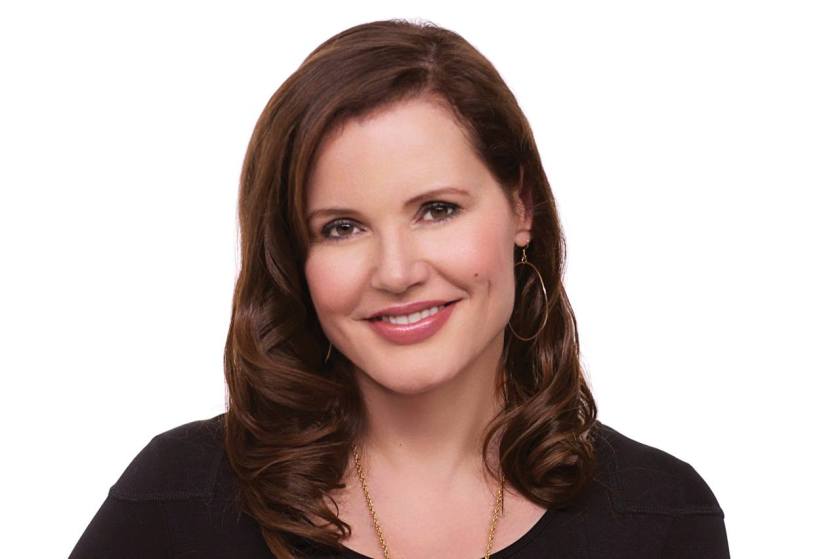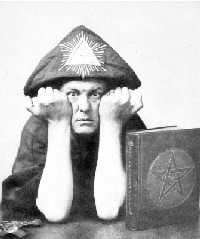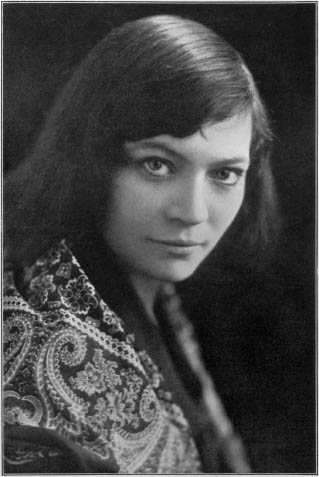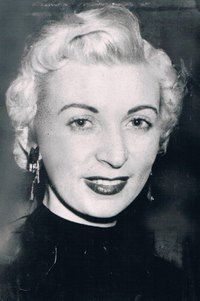
She is tall and beautiful with a dazzling smile and auburn hair. She is an American film star, most dominant in the eighties, who has been in classic movies like Thelma and Louise, Beetle Juice, The Fly, Earth Girls Are Easy and Stuart Little. She has recently starred in successful U.S series Grey’s Anatomy as Dr. Nicole Herman. She is set to star in a Hollywood movie, currently in post production, called Majorie Prime.
Geena Davis discovered from an early age that she was musically gifted and could take to playing piano, flute and organ. She is fluent in Swedish, graduated with a bachelors degree in drama, is a member of Mensa, was a model at Zoli Modelling agency and wait for it, there’s more! … Davis was short-listed for the 2000 Olympics…as an archer. Is there nothing this girl can’t do! I hate her! No, only joking. I love the woman.
And I love her even more for her forays into the nature of inequality in the workforce, particularly in the creative entertainment business. Never mind Hollywood, sexism is prevalent everywhere, the work force, the sex force, the love force, the creative force, the just being friends force.
She has married, settled down and has children, but Our Geena won’t settle down into safe apathetic middle age. She doesn’t want to watch repeats of NCIS in the afternoons or camp down with Haggan Daz, and say f*** the world, I have a blissful middle class life. Who cares about the new sexy tight bodied female actors coming up in the world. Like I care. I got banana ice cream with caramel and cookie swirls and chocolate peace signs on this sofa. Or if it was me, cheesecake with Greek yoghurt and blueberry swirls.
It was a bit like the scene in Labyrinth where Sarah is temporarily hoodwinked into thinking life is good and all she’ll ever need is her teddy bears and her dolls and her hidden object games. She’s in a safe and very blissful place, just having a happy girlish time.
Anyhow, Geena said, hang on a mo, wait there a sec, there’s something not quite right here peoples. I’ve just noticed, I’ve done the math (As we noted before, she’s a member of Mensa) and I’ve been watching films and I’ve noticed that women are a bit like mushrooms. Kept in the dark and fed s***.
Well she didn’t say anything like that. Apparently, she was sitting down to watch children’s telly with her daughter one evening, when she noticed an inequality in male to female roles. Perhaps she saw that in children’s programming first, because she was watching with her children, and then in t.v and movies generally. She must have thought, hang on, I’m smarter than the average pigeon. One word, Mensa.
Having read, studied and appeared in theatre plays, I have noticed, rather gradually (as I’m a slow learner) and rather indignantly, that male roles are first and foremost. They are always the most meaty ones, with the most lines, not necessarily the most poignant or meaningful but they are just there. It seems to be about air time, whether it’s theatre, t.v or film, it’s about maximum male exposure. It’s the flasher made legal. They can be a cad, a rapist, a mad scientist, gangster, a writer, a war hero, an entrepreneur, lodger, bum, it doesn’t matter, as long as they’re male.
Having written theatre plays, I realise I may have been guilty, particularly as a youngster, of placing men in central roles, which is a product of deep seated conditioning, my environment, being a youngster, and a reflection of the social norms of the time. Having recognised that, I hope I can learn from it.
Male actors are always going to get more air time, more importance, more exposure and usually top billing. While men are the central character, always the maypole, the female(s) are not the reason for the story or the plot, they are always the bounce off, the supporting cast,the girl on the arm, the appendage, the trophy.
Geena officially investigated and intensively researched gender in children’s entertainment with the help of the Annenberg School For Communication at the University Of southern California., It was discovered that there were nearly 3 males to every 1 female character in the almost 400 children’s movies analysed.
‘‘When my friends and I would act out movies as kids, we’d play the guy’s roles, since they had the most interesting things to do,’
– Geena Davis.
This happened to me too. Between the ages of 8 and 11, I role played a 27 year old ladies man called Keek Jones. I played him in little original plays and scenarios thought up by me and my on and off screen brother (whose pseudonym was Georgie Jones. We were a kind of Bodie and Doyle from The Professionals. I was Bodie, of course) and got so deeply involved in the character,that I didn’t know I was female and twelve, until I was about twelve.
Geena may not be in main roles in blockbuster movies any more but she is still making a splash in the awareness of gender issues in the entertainment/media industry. Like perhaps many other women, I couldn’t fail to notice discrepancies in gender imbalances in the entertainment industry, but have never thought it any big deal, just accepting it as ‘our lot’ as women. Although the studies have only been done in children’s television entertainment, it sweeps across the board. You don’t need a study from a university to prove it, but it helps.
What would help disprove sexual and gender inequality? Well things like, if Geena had a main female role in a major movie and not be relegated to the sidelines as somebody’s mother …and to be cast as the love interest. Yes, that might do it.
Guys like Harrison Ford are in their seventies and yet, it would be perfectly acceptable for them to sleep with younger women characters. Doesn’t usually work the other way around. There we have the inequality that is ignored, denied and not recognised among the Hollywood moguls, or perhaps in any workforce or walk of life. Girl power never existed. It was the usual lip service, patronized by powerful patriarchs behind closed doors. The Spice Girls just created an illusion designed to make men breathe a little easier.
Geena is currently looking into gender equality in all areas at the moment, not just in children’s entertainment, which doesn’t surprise, as it would be a natural progression. I’ll bet she’s opening up a whole can of worms in that area. She says, “Amazingly, the ratio of male to female characters is exactly the same as it was in 1946. We see The Hunger Games come out and we think … things are changing, but the numbers haven’t changed.’
But apparently, there is an improvement in T.V, as opposed to movies, where women have stronger and more prominent female characters. An example being new marvel phenomenon Jessica Jones. Yet, women constitute just 12% of protagonists in both T.V and film. Only 17 percent of the screenwriters featured on the 2015 Black List were women. The Black List is what people behind the scenes are reading in Hollywood. Men predominantly write the scripts, a place where women are women and men like it. It’s only natural that men have a tendency to write from their perspective, a male one, so until women are represented equally in scriptwriting terms, until those scripts are chosen, until they are allowed to have a voice that writes from a female point of view, equality is not going to happen. What makes it worse, is that the Black List is the result of a survey of 250 entertainment executives, that is 40 percent female.
Geena Davis suggests that, although ground breaking films like ‘Thelma and Louise’ get made and are anticipated to induce a plethora of similar movies, in reality, this is just not the case. While people enjoy movies with female protagonists, they very rarely lead to any long term breakthroughs in gender presence. Instead, they remain simply novelties, designed to patronise and sedate.
Equality of the sexes is still a long, long way away. I open doors for men, as I open doors for women, (just because they’re human) and men get confused, as men do, and think I’m trying to get off with them, and the women never say thanks. I must have SOME motive? Sarcasm? Bitchiness? Likewise, I’ve seen men open doors for women (just because they’re human) and they get short shrift. (Probably, again, because they think the men are trying to get off with them or somehow trying to patronize them). Why can’t people just accept that maybe, just maybe, people are being polite and it has nothing to do with gender. When you open a door for someone, it’s about kindness and thoughtfulness and is just a very basic consideration from one human being to another. Or at least it should be. Why make it a gender issue. Let’s make it a person issue. The same goes for movies.
“Gender discrimination drives me crazy,” Streisand said. “Women are still treated as second-class citizens in the workplace and are not equally represented in Congress.”
Barbra Streisand and Geena Davis have offered a solution. The way forward is for women to join forces with each other in the industry. Women basically need to work together to change things. Nice idea. Well, we all know how uncompetitive women are with each other and how they don’t have a bitchy thought in their heads. If there are self confident women, secure in their own bodies, like Geena and Barbra around, then it’s gonna work, let’s hope it does, but it might take a bit more time and a bit more of a mind shift for others.
And we’ll let Geena have the last word here…
Geena Davis’ TWO EASY STEPS TO MAKE HOLLYWOOD LESS SEXIST’:
Step 1: ‘Go through the projects you’re already working on and change a bunch of the characters’ first names to women’s names. With one stroke you’ve created some colorful unstereotypical female characters that might turn out to be even more interesting now that they’ve had a gender switch. What if the plumber or pilot or construction foreman is a woman? What if the taxi driver or the scheming politician is a woman? What if both police officers that arrive on the scene are women — and it’s not a big deal?
Step 2: When describing a crowd scene, write in the script, “A crowd gathers, which is half female.” That may seem weird, but I promise you, somehow or other on the set that day the crowd will turn out to be 17 percent female otherwise. Maybe first ADs think women don’t gather, I don’t know.
And there you have it. You have just quickly and easily boosted the female presence in your project without changing a line of dialogue’.
Sounds like a plan.




